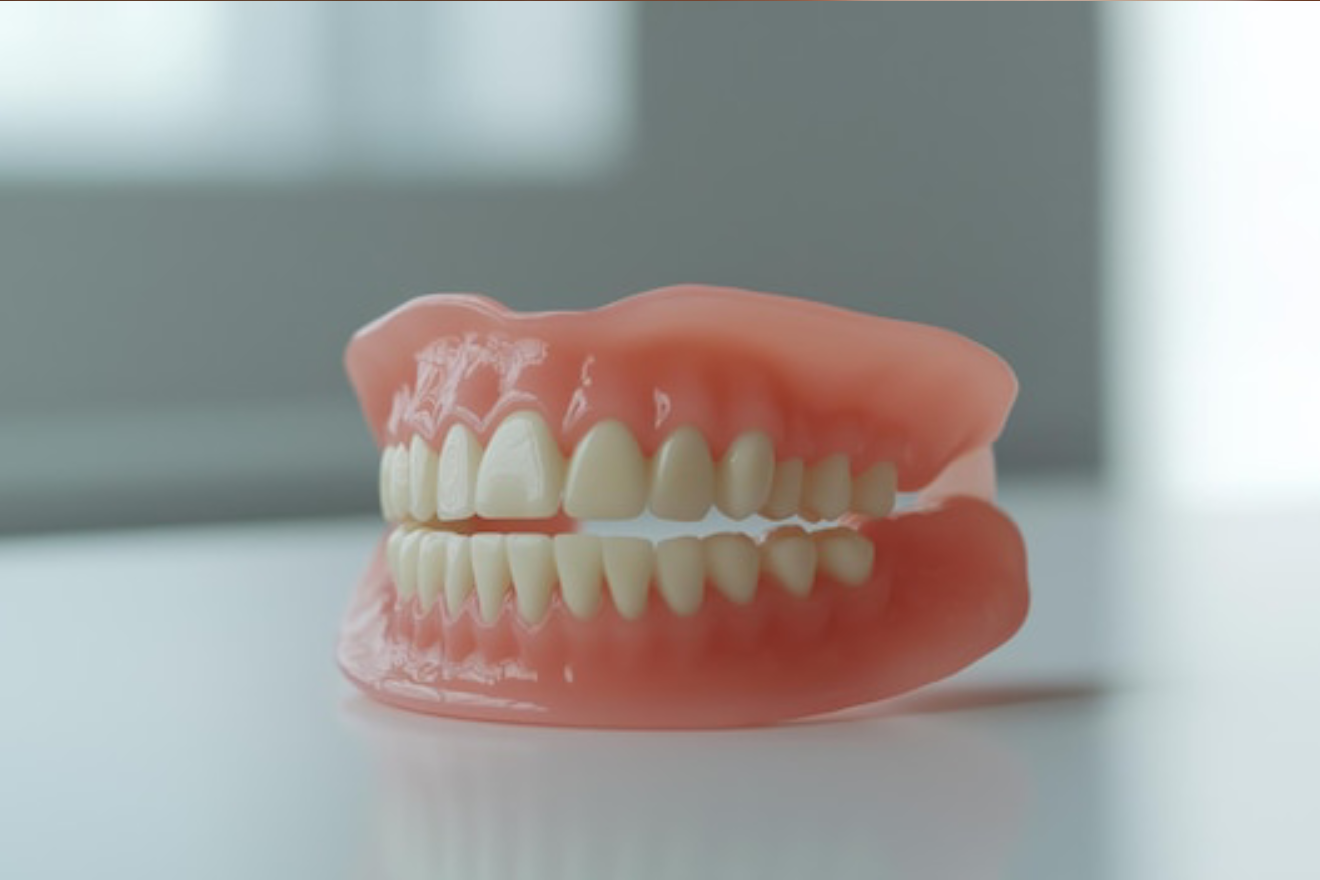Comprehensive Guide to Dentures
Dentures are removable dental appliances designed to replace missing teeth and restore the function and appearance of your smile. Whether you need a full set of dentures or partial dentures, this treatment can help you regain the ability to eat, speak, and smile confidently. Here’s an in-depth guide to dentures, including their types, benefits, and care.
What Are Dentures?
Dentures are prosthetic devices used to replace missing teeth and surrounding tissues. They are custom-made to fit your mouth and are designed to replicate the appearance and function of natural teeth. Dentures can be categorized into two main types:
- Complete Dentures: Complete dentures replace all the teeth in the upper or lower jaw, or both. They are used when all of the natural teeth in a dental arch are missing.
- Partial Dentures: Partial dentures replace one or more missing teeth while preserving the remaining natural teeth. They are held in place by clasps or other attachments that connect to the existing teeth.
Benefits of Dentures
- Restored Function: Dentures restore your ability to chew and speak effectively, improving your overall quality of life and allowing you to enjoy a varied diet.
- Improved Appearance: Dentures enhance the appearance of your smile by filling in gaps left by missing teeth and supporting the facial structure, which can prevent the sunken look often associated with tooth loss.
- Enhanced Confidence: With a complete and well-fitting set of dentures, you can feel more confident in social and professional situations, knowing that your smile looks natural and attractive.
- Customizable Fit: Dentures are customized to fit your mouth comfortably, ensuring a natural look and feel. Modern denture materials and techniques allow for precise customization and a more comfortable fit.
Types of Dentures
- Conventional Full Dentures: Conventional full dentures are placed after the gums have healed following the extraction of remaining teeth. This healing period usually takes several months.
- Immediate Full Dentures: Immediate full dentures are placed immediately after tooth extraction, allowing you to avoid going without teeth during the healing process. Adjustments may be needed as your gums heal and change shape.
- Overdentures: Overdentures are placed over existing teeth or dental implants, providing additional stability and support. This type of denture can help preserve the natural teeth or implants.
- Partial Dentures: Partial dentures are used when some natural teeth remain. They consist of replacement teeth attached to a metal or acrylic framework that clasps onto the existing teeth for support.
The Denture Fitting Process
- Initial Consultation: The process begins with an initial consultation where your dentist will evaluate your oral health, discuss your needs, and determine the type of dentures that are best for you.
- Impressions and Measurements: Your dentist will take impressions and measurements of your mouth to create custom dentures that fit precisely. These impressions help ensure a comfortable and accurate fit.
- Denture Fabrication: Based on the impressions, a dental laboratory will fabricate your dentures. This process involves creating a wax model to verify the fit and appearance before producing the final dentures.
- Fitting and Adjustments: Once the dentures are ready, you will have a fitting appointment to try them on. Your dentist will make any necessary adjustments to ensure proper fit, comfort, and function.
- Follow-Up Visits: After receiving your dentures, follow-up visits may be scheduled to check the fit and make any further adjustments as needed.
Care and Maintenance of Dentures
- Cleaning: Clean your dentures daily using a soft-bristle toothbrush and a non-abrasive denture cleaner. Avoid using regular toothpaste, which can be too harsh and cause damage.
- Soaking: Soak your dentures in a denture cleaning solution overnight to keep them moist and free from bacteria. This also helps to maintain their shape and prevent warping.
- Oral Hygiene: Brush your gums, tongue, and the roof of your mouth daily to remove plaque and stimulate blood flow. This helps maintain overall oral health and prepares your mouth for a new set of dentures if needed.
- Regular Check-Ups: Schedule regular dental check-ups to monitor the condition of your dentures and your oral health. Your dentist can make adjustments or repairs if needed and ensure that your dentures are functioning properly.
Potential Considerations
While dentures offer many benefits, it’s important to consider the following:
- Adjustment Period: It may take time to get used to wearing dentures, and you may experience some discomfort or difficulty speaking initially.
- Fit Changes: Over time, changes in your gums and jawbone can affect the fit of your dentures. Regular adjustments and relining may be necessary to maintain a proper fit.
- Dietary Adjustments: Some foods may need to be avoided or modified to prevent damage to the dentures and ensure comfortable eating.
Conclusion
Dentures provide an effective solution for replacing missing teeth and restoring your smile, function, and confidence. By understanding the types of dentures, the fitting process, and proper care, you can make an informed decision and enjoy the benefits of a well-fitting and natural-looking dental appliance. Consult with your dentist to explore your options and find the best denture solution for your needs.


